VHF replay, more than just a good idea
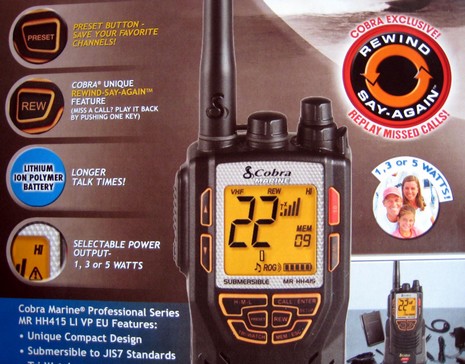
Panbo reader Steve e-mailed a while back asking me to bug the VHF manufacturers to build in a replay feature. He wrote, “I cannot say how many times I have missed something on the VHF and longed for a ‘back’ 10 seconds button.” Well, I thought it was a great idea—lord knows how many times I’ve suffered through a long NOAA weather loop only to space out by the time the particular forecast or buoy stats I wanted came along. But I had nothing to do with the several VHF replay features now hitting the market.
First up is a Cobra handheld that was previewed at METS (above). It has a built-in memory chip that records the last 20 seconds of whatever breaks squelch on the channel(s) you’re monitoring. You can also save recordings, make voice notes, or record a canned transmission. The U.S. version of this radio, not yet available, is also dual band, able to do GMRS with 5 watts of transmit power. I suspect that Cobra has a hot product here, and I’m hoping to test it when available. (There 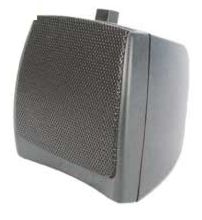 will also be a fixed Class D VHF with “Rewind, Say Again”.)
will also be a fixed Class D VHF with “Rewind, Say Again”.)
Meanwhile, out in Everett, Washington, professional skipper Scott Sucke has developed Last Call, a VHF speaker with a memory chip inside. Straight up it will probably make your existing VHF sound better (building radios waterproof is not good for speaker performance), and it will replay/amplify the last 60 seconds of continuous transmission, save it too. Apparently the Washington State Ferry Service likes them enough to equip its whole fleet. The Last Call Web site has a demo video and contact information, but note that there’s $99 deal going on the first manufacturing batch, “while supplies last”. I hope to test Last Call too.


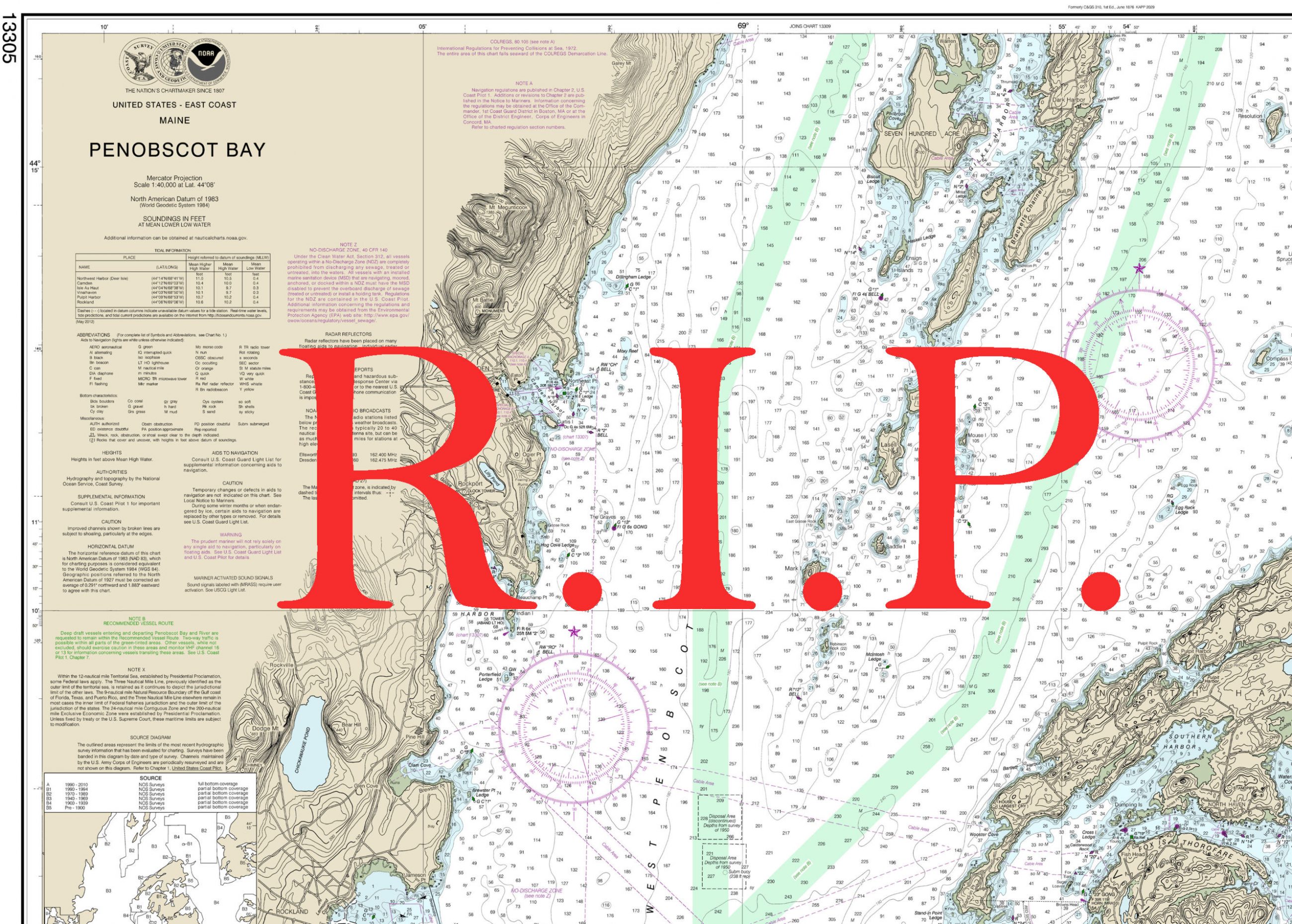
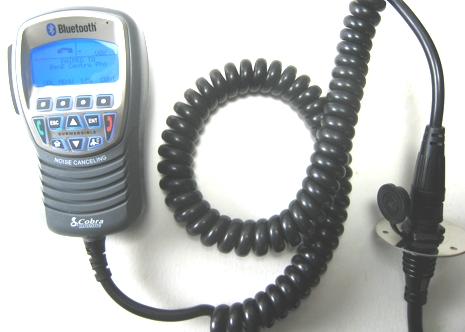
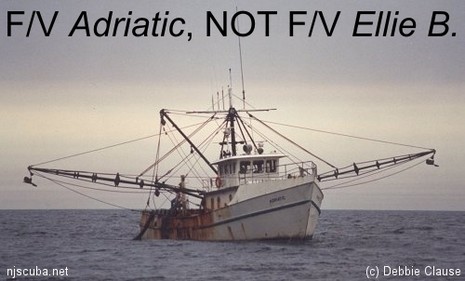








What a great idea. This falls into the catagory of, “Why didn’t I think of this”.
Pat Harman
It will be interesting to see how these develop. I’ve wanted this for a long time in my car radio, but there is no question of broadcast quality there, just my inattentiveness.
The question with marine VHF is whether playing it back will make it more intelligable or not. Were we not listening, or was it sufficiently garbled that listening a few more times won’t help?
This may be more useful for broadcast information (e.g., weather report), than a real time conversation. What is the other half of your conversation doing while you punch the replay button a few times?
However, I can imagine an SAR situation with a weak link where a reply would be nice. But if it’s just the last 20 seconds of whatever broke the squelch, it may write over the thing you wanted to go back and hear.
Good idea, but I think the UI will need some development as we figure out how to really use it. Definitely goes in the “gadget” category for now.
A further thought. What we really need is to have the message clarified, apply some DSP technology and improve the quality of transmission/reception.
What if the “replay” button was like the automatic adjustment in photoshop, that does an instant clean up of your photo, and also sharpens the picture? Why not apply that approach to voice?
With marine VHF we’re looking for a very narrow band of voice, not music, not singing, no wide frequency range needed (within the voice communication), we have a pretty good sense where the information is in a message.
Are there some audio engineers out there who could add some real value to this idea?
Thrane & Thrane’s Sailor RT5020/5022 VHF radios have had this feature for some time. Can’t seem to easily find a price for these units, but looking at the feature set and marketing, I’d guess they’re not inexpensive.
>What if the “replay” button was like the automatic adjustment in photoshop?
>Are there some audio engineers out there who could add some real value to this idea?
The only thing really gained by doing DSP after the fact vs in real time is cheapness. You can use a slow cheap processor that isn’t fast enough to keep up in real time. But by today’s standards, audio processing is pretty effortless so I’m skeptical much would be gained by processing “offline” in replay mode.
Russ’ remarks about narrow band characterists are correct, but are something radio makers would have known for decades. I would be appalled if they hadn’t already applied this kind of filtering. The phone system has had it for ages.